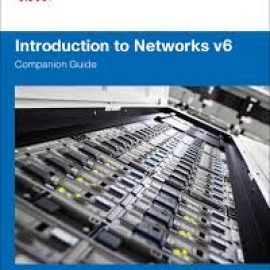Description
This post is also available in:
 العربية (Arabic)
العربية (Arabic)
Holy Lands: Reviving Pluralism in the Middle East
It’s hardly surprising, given the mayhem and misery across the Middle East, that people who know and care about the region are scratching their heads trying to explain, never mind solve, its overarching problems.
That’s easier said than done, of course, but here’s an intriguing if partial answer: consider the more tolerant ways of the Ottoman Empire, whose demise after the first world war gave way to today’s Arab nation states, a Jewish Israel and the growth of intolerance and sectarianism that is fomenting strife between Muslims and destroying ancient Christian communities.
Nicolas Pelham, an Economist journalist, has put together a fine collection of essays – a rare combination of on-the-ground reportage and profound historical knowledge – that takes as its starting point the millet (religious sect) system of the Ottomans, who were more ethnically diverse and tolerant than their European contemporaries.
In the 20th century the idea of the Arab nation, often promoted by Christian ideologues, gained precedence over religion and sect – though both still played a role. Sunnis dominated Iraq, Alawites Syria and co-opted and persecuted minorities (Kurds, Assyrians, Maronites and Jews) to different degrees. “The faith community acquired the attributes and trappings of the national state,” Pelham writes.
Nowadays though, in the bleak aftermath of the Arab uprisings, mutual loathing is everywhere. Affiliations that transcend state borders have weakened national ties and though patriotic sentiment is alive and kicking, online preachers command more loyal audiences than some presidents, emirs and kings.
Sects matter more than ever. Afghan and Pakistani Shias are fighting with Iranian Revolutionary Guards in Syria, though some Alawites recently dissociated themselves from the Assad clan. Saudis and Iranians employ hateful rhetoric – Safavids versus Wahhabis – as a vehicle for the competition of rival states.
Isis, ruling its self-proclaimed “caliphate,” is murderously anti-Shia. Bahrain’s Sunni monarchy discriminates against the Shia majority. But the enemy does not need to be at home: religiously homogenous Libya has become a recruiting ground for jihadis. “The Arab Spring has passed,” the Palestinian Sunni militant Abu Qatada boasted to Pelham. “The Mujahideen Spring is coming – with blood.”
Hostility to Israel shades into European-style anti-semitism in an Arab world that is now largely without native Jews. Ironically, the largest Jewish community in the region is in Iran, implacable enemy of the Zionist state. Anti-Arab racism is on the rise in Israel.
Over-emphasis on the role of Islam in explaining Middle Eastern societies is seen as an aspect of “Orientalism” – Edwards Said’s term for the power-driven, ideologically hegemonic western construction of the (largely) Muslim “other.” Indeed, empirical evidence – like a recent poll of Arab Youth – points to lack of jobs and career opportunities, as well as the failure to advance democratic change, as more important factors than religious extremism in the appeal of Isis.
Pelham tells some heartening stories: ayatollahs hosting a book fair in the Iraqi Shia shrine city of Najaf – in a land where after a decade of sectarian strife 26% still marry outside their sect; Israel “rabbis for human rights” expressing solidarity with Palestinians in the occupied territories. He also cites the important work of the Israeli group Zochrot – I think over-optimistically – showing recognition of the reality of the Palestinian nakba. But prospects for “decoupling the rule of the sect from the rule of land,” in that corner of the Levant are frankly poor.
It is fine to hope that the “region’s battered pluralism” might revive, but that risks sounding like wishful thinking about an unattainable future. Faith certainly matters. But power – often harnessing that faith to its own unspiritual ends – matters more. How is is used, and shared, is an urgent political challenge that needs to met in this world, not deferred until the next one.
Holy Lands: Reviving Pluralism in the Middle East, Nicolas Pelham
Since you’re here …
… we have a small favour to ask. More people are reading the Guardian than ever but advertising revenues across the media are falling fast. And unlike many news organisations, we haven’t put up a paywall – we want to keep our journalism as open as we can. So you can see why we need to ask for your help. The Guardian’s independent, investigative journalism takes a lot of time, money and hard work to produce. But we do it because we believe our perspective matters – because it might well be your perspective, too.
I appreciate there not being a paywall: it is more democratic for the media to be available for all and not a commodity to be purchased by a few. I’m happy to make a contribution so others with less means still have access to information.Thomasine F-R.
If everyone who reads our reporting, who likes it, helps fund it, our future would be much more secure. For as little as £1, you can support the Guardian – and it only takes a minute. Thank you.
Nicolas Pelham is a writer on the Arab world for The Economist and the New York Review of Books. Since his first job as editor of the Cairo-based Middle East Times, he has spent 20 years studying and working across the region. He has a reported as a correspondent for the BBC, the Financial Times and The Economist based in Rabat, Amman, Jerusalem and Iraq, often dragging his indefatigable family with him. He is the author of A New Muslim Order (2008) and co-author of A History of the Middle East (2010). Taking occasional breaks from journalism, he was a senior analyst for the International Crisis Group, and worked for the United Nations and the Royal Institute of International Affairs, reporting on Gaza’s tunnel economy and the rise of the Bedouin in the Sinai peninsula.
Holy Lands: Reviving Pluralism in the Middle East
This post is also available in:
 العربية (Arabic)
العربية (Arabic)
 English
English 




